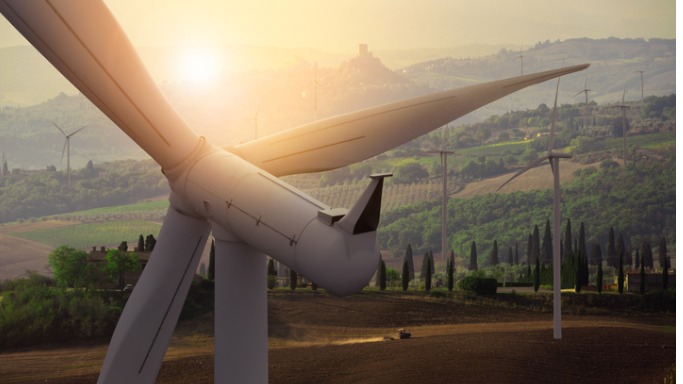As our economy continues to recover from the shock of the coronavirus lockdowns, supporting strong and growing industries is vital to rebuilding stronger than before. This should include the energy sector.
Bloomberg Tax reports that some Senate Republicans, including Thomas Tillis (NC), Cory Gardner (CO), Susan Collins (ME), Richard Burr (NC), Lindsey Graham (SC), Martha McSally (AZ) and Lisa Murkowski (AK) are urging their fellow senators to include clean energy initiatives like wind, solar and nuclear power in the next coronavirus economic recovery bill. The letter says:
Clean energy companies and workers pay an integral role in U.S. energy independence and diversification. Unfortunately, the clean energy sector has seen massive job losses – an estimated 500,000 jobs since the start of the COVID-19 crisis.
…
As we focus on getting the country back to work, we must include an industry that has already been putting Americans to work faster, and in more places, than the overall economy before the COVID pandemic hit. Clean energy job growth had outpaced the economy by 70 percent over the past five years. Further, this growth is truly nationwide, encompassing every state.
…
Continuing to scale up the clean energy sector would grow jobs, support U.S. energy independence, economic resilience, and will be essential for global competitiveness.
This call comes at the same time that the U.S. International Development Finance Corporation (DFC) announced a change to its Environmental and Social Policy and Procedures (ESPP) to facilitate the development of advanced nuclear technology. The DFC press release explains:
The announced change removes DFC’s legacy prohibition on support of nuclear power projects. This update recognizes the vast energy needs of developing countries as well as new and advanced technologies such as small modular reactors and microreactors that could be particularly impactful in these markets.
Modernizing DFC’s nuclear energy policy will help deliver a zero-emission, reliable, and secure power source to developing countries in order to promote economic growth and affordable energy access to underserved communities. This change will also offer an alternative to the financing of authoritarian regimes while advancing U.S. nonproliferation safeguards and supporting U.S. nuclear competitiveness.
Both of these moves are steps in the right direction for U.S. energy policy.
All of us want to keep our planet healthy and liveable, and clean energy, including nuclear, has an important role to play. Nuclear energy is the most reliable energy source without carbon emissions. This is possible because reactors use uranium, not fossil fuels. Other clean energy sources, such as wind and solar, are still unreliable, as we do not have sufficient battery storage capacity to overcome their intermittent nature, which means that nuclear energy has an important role to play in our nation’s clean energy future.
It’s unfortunate that so often those who talk about the need for cleaner energy sources ignore, or worse, demonize nuclear power. Those who really want to reduce dependency on fossil fuels shouldn’t ignore this promisng energy source.
Reliable, affordable energy is an important foundation for the entire economy, and to the extent that we can also advance technologies that lower-emission and reduce pollution then that’s all the better.

